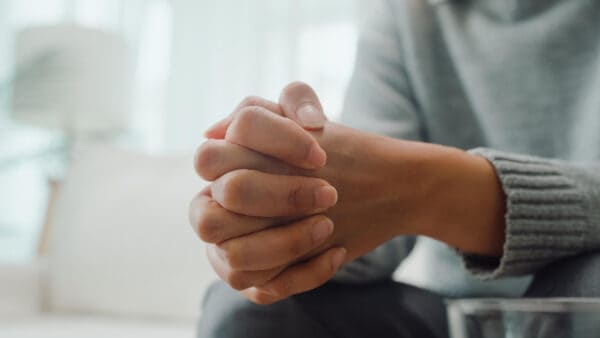
As a cremation provider, we feel that it is important to discuss the grief that follows the death of a loved one. Our staff can connect you with grief resources in your area. But maybe you aren’t sure if you want to talk with a mental health professional following the death of a loved one. Here are some of the functions of grief counseling.
The Functions Of Grief Counseling From Mental Health Professionals
Before we discuss the typical functions of grief counseling, it’s important to note the following:
- Grief counselors won’t encourage you to forget the deceased.
- Grief counseling won’t relieve you of feelings of sadness.
- Counseling won’t change the core of your being or personality.
Instead, here’s why grief counseling matters and may benefit you.
Grief counseling can be used to help you accept the death of your loved one.
Some people feel numb following a loss and go on as if nothing happened. Grief counseling can help those who feel disconnected from their feelings or struggle to accept what has occurred.
Grief counselors can help you process a traumatic loss.
Please understand that every loss is difficult. However, if you lost a loved one due to a traumatic event that you may have witnessed – or watched your loved one die, you may need trauma therapy and grief counseling.
Counseling can help you work through the pain of grief.
Again, please understand that counseling will not cure you of being sad about your loss. However, psychologists, therapists, and grief counselors are equipped to help individuals manage emotions, including intense sadness, anxiety, guilt, fear, or anger. These licensed professionals can help you with coping strategies and help you find ways to move on – while still remembering your loved one.
A grief counselor can help you adjust to life without the deceased.
During grief therapy, mental health professionals can help you understand the significant life transitions that may come from the loss. These professionals can also connect you with local resources and support groups.

Counseling can help you maintain a connection with a loved one.
Your therapist may ask about the deceased person, your memories with them, and what you will most remember. If talking about your loved one is too painful, they might encourage you to find your own way to retain your memories, such as journaling, art therapy, or group therapy.
Bereavement counseling can help you with complicated grief.
According to WebMD, many overcome or learn to manage their grief over time. But some people experience “complicated grief,” in which you may have symptoms that last for up to a year or longer. They include the following complicated grief reactions:
- Intense sadness
- Emotional pain
- Feelings of emptiness and hopeless
- Yearning to be reunited with your deceased loved one
- Constantly thinking about the death of a loved one
- Difficulty engaging in happy memories of the deceased person
- Avoiding anything that reminds you of the loved one
- A reduced sense of identity
- Detachment and isolation from family members and friends
- Lack of desire to make plans or have interests
Do You Need Help With the Grieving Process?
As you can see, grief therapy can be helpful for anyone who experienced a loss – not just those who experienced traumatic grief.
If you need to make funeral arrangements – or are experiencing anticipatory grief for a loved one who will soon leave the world, contact Smart Cremation. We can help you arrange affordable cremation and connect you with a mental health practitioner in your area.
Key Takeaways About Grief Therapy
- Grief counseling services can help a person accept the death of a loved one.
- Grief counselors can help you process a traumatic loss and complicated grief.
- Counseling can help you work through the pain of grief.
- A counselor can help you adjust to life without the deceased while maintaining a connection with your loved one.




